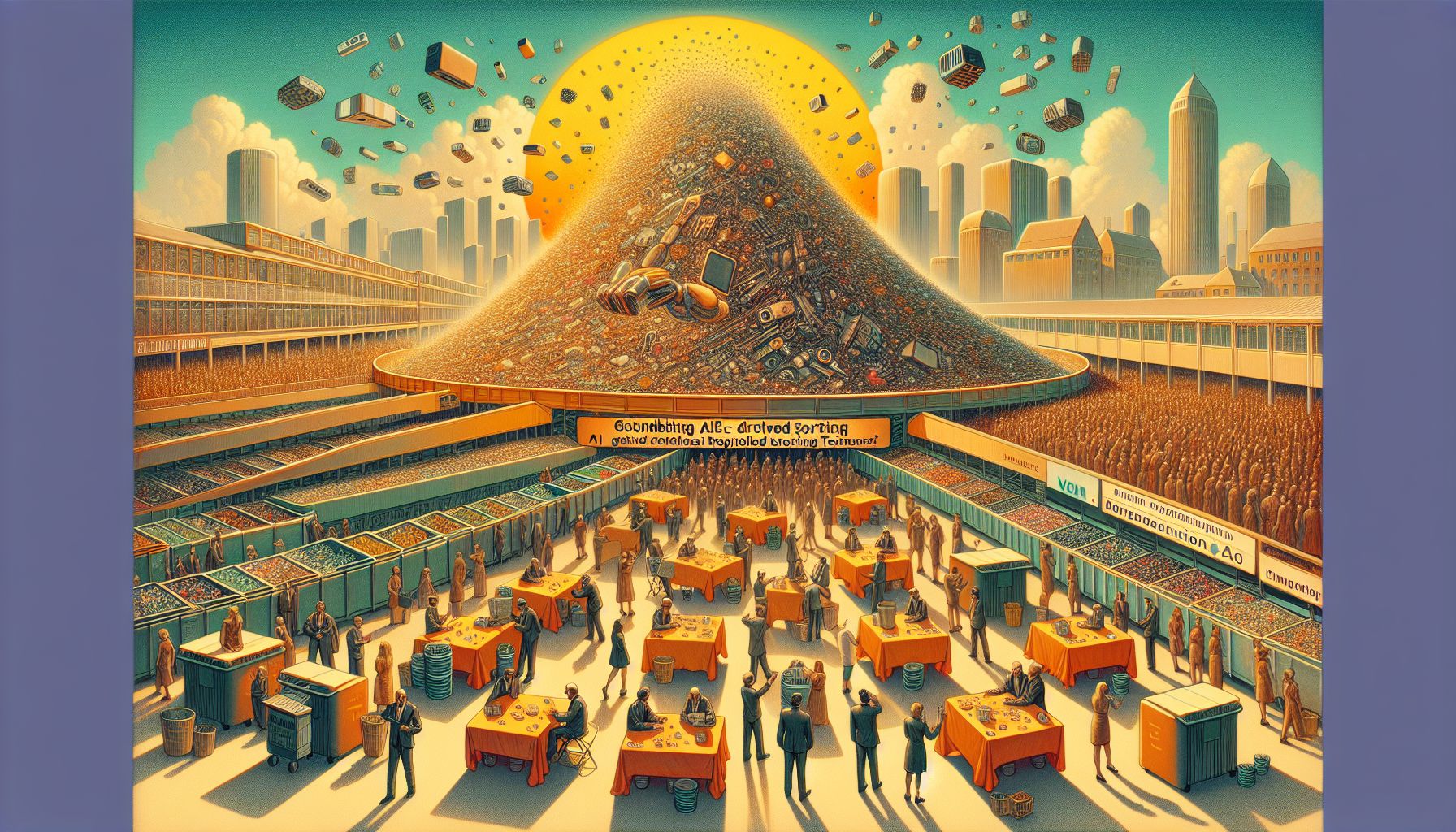AI-Powered Recycling Revolution Set to Transform Waste Management in 2024

Netherlands, Monday, 18 November 2024.
The upcoming Recycling Trade Fair 2024 in Gorinchem showcases groundbreaking AI-driven sorting technologies, marking a pivotal shift in waste management. Industry leaders demonstrate how artificial intelligence is revolutionizing recycling efficiency, with interactive demonstrations proving that smart technology could reduce processing costs by up to 40%. However, this technological advancement comes with its own environmental challenges, as AI hardware could contribute up to 5 million metric tons of e-waste by 2030, highlighting the critical need for sustainable solutions in the recycling industry’s digital transformation.
Driving Efficiency in Waste Management
The integration of artificial intelligence into waste sorting processes is establishing a new paradigm in recycling operations. At the Recycling Trade Fair 2024, companies like SSI Shredding Systems and Bianna Recycling unveil their latest innovations, showcasing how AI can streamline the sorting of waste materials, thereby reducing operational costs significantly. This advancement is not only about cost efficiency but also about enhancing the accuracy of sorting recyclable materials, thus promoting a more sustainable environment[1].
Interactive Demonstrations and Networking Opportunities
The event is designed to be an interactive arena where attendees can witness firsthand the potential of AI in recycling. Demonstrations at the Demopark provide insights into cutting-edge machinery and innovative processes that contribute to sustainable waste management. This hands-on experience is coupled with opportunities for collaboration among industry stakeholders, fostering partnerships that are essential for advancing circular economy initiatives[1].
Balancing Innovation with Environmental Responsibility
While AI-driven technologies promise significant improvements in recycling processes, they also pose environmental challenges, particularly in terms of electronic waste. A study indicates that by 2030, generative AI could contribute an additional 1.2 to 5 million metric tons of e-waste. This underscores the urgent need for recycling industries to adopt sustainable practices when implementing new technologies. Companies like Microsoft and Google are leading the charge, aiming for net zero waste and emissions by 2030, which includes strategies to mitigate AI-related e-waste[4].
Collaborative Efforts for a Sustainable Future
The Recycling Trade Fair 2024 is not just about showcasing technological advancements; it is also a call to action for industry players to collaborate towards a sustainable future. The presence of global leaders in recycling, like the Bureau of International Recycling (BIR), emphasizes the collective effort required to address the environmental impacts of technological innovations. This collaboration is crucial to harnessing the full potential of AI in recycling while ensuring that the industry moves towards a truly circular economy[3].

